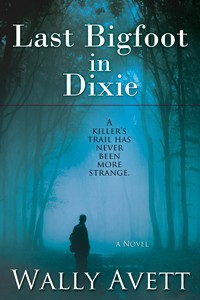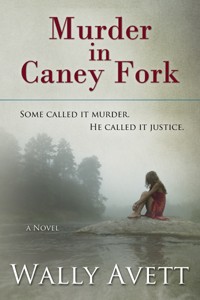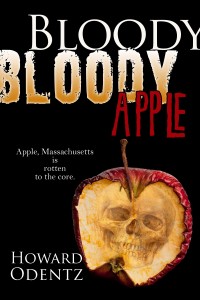 Picture Perfect Meadowfield – 1987
Picture Perfect Meadowfield – 1987
by Howard Odentz
Thirteen-year-old Garrett McCarthy pumps the pedals on his ten-speed bike as he glides through the darkened neighborhoods of bucolic Meadowfield, Massachusetts. He weaves in and out of the shadows cast by street lights, whistling a tune that’s been stuck in his head all day.
It happens to be a song by The Talking Heads released four years prior, but Garrett doesn’t know that. He just thinks it’s strangely appropriate.
His parents aren’t home. Most nights Garrett is left alone. His mother, Maggie, is overly involved in town politics. His father, Gene, works late far too often, or at least that’s what he tells his family.
Garrett’s absentee parents suit him just fine. Being alone gives him breathing room. It also gives him time to work on his hobby, the one that he has been perfecting for a while now but keeps to himself.
Garrett McCarthy likes to watch things burn.
He likes it better than television, and he even likes it better than perusing the collection of old Hustlers that his father keeps stored in plastic bins underneath the basement stairs, supposedly hidden within stacks of Life Magazines.
There’s something about the erratic dance of flames that stokes Garrett’s inner furnace and ignites his passion. Simply put, watching white, hot death devour everything in its path floats his boat.
Most of Garrett’s fires have been small thus far, causing no real damage other than to things that don’t matter. Certainly no one has been hurt in his flames. Still, he is acutely aware that when the heat and light engulf everything and he watches, compelled and engrossed, he is missing something crucial and desired.
He longs to hear what will happen when fire and flesh meet. He imagines there will be frantic squeals like those that permeate a slaughter house when the other pigs realize that they might be next. He wants to relish the sound of screams—the popping of flesh—the crackling of hair.
That’s why tonight Garrett is on a mission. He wants to burn something big.
Last month’s torching of the attendant’s shack by the entrance to the town dump at the end of Miller Road was less than fulfilling. So was the incineration of Father McQueen’s old Cadillac.
Garrett found the Father’s car in front of the park entrance to Prince Richard’s Maze. Everyone knows why middle-aged men skulk in the Maze at night but no one ever broaches the subject. Garrett lit up the Cadillac while the father was getting busy elsewhere, but the gas tank didn’t blow.
That’s why tonight Garrett McCarthy is after something much, much bigger. There’s a demon coiling inside his belly, demanding to be fed, and Garrett is acutely aware it can no longer survive on meager half-meals. He now must offer it a banquet of heat because that’s the only thing that will sate its ever growing appetite.
As Garrett meanders through the dark streets, riding his bike with no hands and a pack full of fixings on his back, he decides that his initial target, Journey’s End Senior Care, is too big and too well built for arson. Besides, he’s almost positive that there are sprinklers inside that will be activated the moment any smoke is detected.
His mind wanders to a new target—a disheveled old bungalow in a bleak corner of town, two streets in from the Connecticut border. A hundred years ago, the ramshackle eyesore belonged to a woman named Ma Irish who delivered babies and sold pickled eggs from her living room.
An unseemly family lives there now. They display rusted-out cars on cinder blocks in the front yard, and keep more than one pit bull chained in the back. People talk about how such a family doesn’t belong in a community like Meadowfield. Garrett has no opinion about that. However, he does think Ma Irish’s house is a bit of a town fixture. Removing that piece of local history may leave a hole better served un-dug.
Ultimately, Garrett decides on a different target. It is one he has been thinking about for a while now. Folks in Meadowfield will be sad to see it burn because, for some reason that Garrett can’t fathom, most people find fire tragic.
Still, they won’t be too sad.
He leans forward as he pedals, grabbing his handle bars and steering his bicycle this way and that before finally turning onto Sycamore Avenue. There is an old two-story colonial at the dead end, tucked up against the woods, with a handicapped ramp that zig-zags up to the porch.
A very small sign in front read ‘Happy Valley Group Home’ which sounds way cheerier than what lives inside.
The Happy Valley Group Home houses six developmentally delayed teenagers and two full-time staff. Garrett doesn’t know any of them by name, but he has seen the sad, little group at Cinema X before. Some are in wheel chairs and others stand quietly by the ticket taker with their hands on each other’s shoulders so they won’t get lost. After all, there is an ocean of ways one can disappear between the concession stand and the bathrooms.
Meadowfield will mourn the loss of the Happy Valley Group Home, but not really, and when the old colonial and those inside are nothing more than blackened ash, some will even breathe a sigh of relief that ‘those kind of people’ are no longer part of the fabric of town.
Although Garrett McCarthy doesn’t exactly agree with such a harsh sentiment, in some perverted way, he thinks dispatching the building and those inside is somehow performing a kindness. At least that’s what he keeps telling himself as he glides down Sycamore, ever wary that no one is outside in the darkness to see him
At the end of Sycamore, just past the Happy Valley Group Home, Garrett gets off of his bicycle and pushes it twenty feet into the woods.
There, he pulls his back pack off of his shoulder, unzips it and pulls out everything he will need to feed his glitch, even though he doesn’t think of pyromania as a glitch at all.
He thinks of it as magic.
After he gathers together a glass jar full of gasoline, newspaper, and wooden matches that he favors over a lighter, he pushes through the thick foliage until he is standing right inside the tree line. There, he studies the house from the shadows, poking and prodding at it with his deranged mind, seeking the perfect spot to set a fire.
His inner demon offers up a multitude of solutions.
‘Underneath the porch’, it whispers.
No.
‘The back of the carport,’ it prods.
No.
‘The basement.’
Yes.
Garrett’s eyes follow the side of the house to the backyard. There he spies a cobblestone patio with patches of weeds growing through the crisscrossed pattern between the stones, and a metal hatchway.
The patio’s disheveled nature gives Garrett’s inner demon fuel to urge him on.
‘The Happy Valley Group Home is so untidy,’ the demon says. ‘Cleanse it.’
Garrett’s eyes sparkle. Fire always rises, so starting a blaze in the basement might be the perfect way to create a tower of flames so tall that it can be seen from as far away as Skinner Mountain. He smiles, because someday he knows that he will also burn The Summit House on top of Skinner to the ground, hopefully while there is an event going on inside, like a wedding or a sweet sixteen party.
Thoughts of puffy dresses combusting makes his tongue wet. Garrett licks his lips and a slick of saliva drips down his chin.
‘Do it now,’ hisses his demon from deep inside his belly. ‘Feed me. Feed me. Feed me.’
Garrett crouches down low and quickly runs to the side of the house. There is a window there with a partially pulled shade. Slowly, with his fingers splayed and his heart pounding, he stands until just the top of his head and his eyes are over the windowsill.
Inside, some of the residents of the Happy Valley Group Home are watching children’s puppets on television, however, they seem as though they aren’t watching the dancing screen at all.
A boy with milky eyes, confined to a wheel chair, is playing air piano with weirdly jointed fingers that look better suited to a skeleton.
Another has his eyes half-lidded and his chin on his chest.
A third boy looks all wrong, like he’s been drawn by a third grader with poor anatomical skills. His head is misshapen and lopsided.
The three of them sitting there, dull and dim-witted, make Garrett a little angry.
They all look so off that he’s not even sure that they will scream when the flames begin shooting through the wooden floor. The residents of the Happy Valley Group Home might just stare at the fire with their vacant manatee eyes and not do anything, even when the deadly flower finally reaches them—searing their skin—making it bubble and burn.
‘Oh, they’ll feel it,’ whispers his inner demon. ‘They’ll feel it but good.’
A pleasant chill runs up Garrett’s back as he agrees with the monster inside. A fire will surely coax the residents of the Happy Valley Group Home out of their stupor.
That’s what fire does.
Without hesitating, he sprints to the back of the house and across the weed-filled patio to the metal hatchway.
Garrett holds his breath as he reaches for the handle, praying that it isn’t locked. Thankfully, his prayers are answered. He pulls open one side and gingerly descends the wooden stair case while holding the hatch open, then quietly lowers it back into place so no one will know that he’s there.
The basement is dark, but Garrett McCarthy is used to the dark. He stands still for several minutes, waiting for his eyes to adjust. He knows they eventually will.
Once they do, he sees shadows of boxes, storage containers, several wheelchairs and a workbench. He reaches into his pocket and pulls out a chubby, unscented votive he has taken from his mother’s holiday closet. Then he strikes a wooden match and lights the candle. Immediately, the rest of the basement turns color and he can see. There’s a washing machine and a dryer against the far wall. There’s also an extra refrigerator and a freezer chest. Scanning the room, he sees separate cage-cubbies like in the nether regions of an apartment building, each with a name on it and a padlock. They appear to be filled with suitcases and trunks.
Garrett rightly guesses that these are the storage areas for each of the residents. It’s where parents have dumped the belongings of their family embarrassments, relieved that their burdens are someone else’s problem now and they can finally forget.
Garrett McCarthy smiles to himself. Once he has cremated the Happy Valley Group Home, the people of Meadowfield, Massachusetts, will forget, too. He knows he’s right to have chosen here. It’s an easy target. He can’t wait until he is back in the woods, watching the flames reach higher and higher until the whole place is blazing in glorious death.
Garrett walks across the room and puts the candle down on top of the freezer chest. Then he quickly surveys the rest of the basement to find exactly the right spot to start his work. Above him he hears the television blaring away and maybe the creak of a wheel chair slowly rocking back and forth.
He smiles again as he unscrews his jar of gasoline and splashes the floor with the acrid liquid. When he’s through, he bunches up wads of newspaper and wets them with what’s left in the jar, stuffing clumps between cardboard boxes and other things that look like they will burn easily.
Finally, with his heart pounding in his chest out of sheer anticipation, he strikes a match and drops it to the floor.
Immediately fire erupts and races across the cellar, hitting wet newspaper as it goes. Each damp pile bursts into life in front of Garrett’s gleeful eyes. Scant seconds after the fire begins, an alarm pierces through the basement so loudly that Garrett hears someone scream up above and footsteps running through the house.
‘Excellent,’ hisses his demon. ‘More.’
Garrett, however, is transfixed. He can’t help but watch his newborn masterpiece devour everything in its path, regardless of the alarm and regardless of the movement over his head. His inner demon devours each image alongside him as fire ignites wood and debris. Little beads of sweat start to pop out on his forehead.
Garrett pays no heed to anything but the flames and the delicious screams of Happy Valley panic in the rooms above.
Soon, very soon, the heat starts becoming too much for Garrett and he knows he has to leave. Reluctantly, he backs away from the flames and returns to the hatchway stairs, the alarm blaring, and the good residents up above panicking.
Unfortunately, the hatchway door is locked. He doesn’t know how and he doesn’t know why.
If he were older and smarter he would have studied up on safety precautions for residential facilities such as the one he is now burning. In doing so, he would have learned that all doorways and windows in places like the Happy Valley Group Home automatically lock from the inside to keep the residents from wandering away, or that the trained staff makes sure that everyone is out of the house and on the front lawn in less than a minute after an alarm is set off.
Unfortunately still, the path to the basement stairs leading to the first floor is now blocked with flames, and Garrett can’t exit that way either.
He can’t exit at all.
So while the residents of the Happy Valley Group Home watch their colonial go up in flames, one still nodding and another playing air piano, no one hears the screams of a fourteen-year-old boy locked in the basement, his skin crackling and splitting and his clothing melting onto his body.
No one that is, save for the hungry creature that Garrett McCarthy carries around in his gut.
‘Delicious,’ it wails. ‘Scrumptious. Give me more…more…mo…’
Read more of Howard Odentz’s work today!

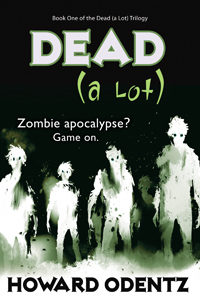
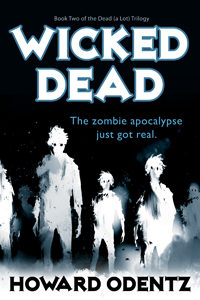


Bloody Bloody Apple is on sale for $0.99 until October 31st!
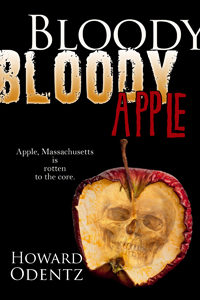
 Born in Mississippi and raised in South Carolina, my roots run crazy deep into the Delta soil of one state and the Lowcountry pluff mud of the other. My grandfather ran a cotton farm, and my grandmother taught me to eat homemade biscuits with maple syrup warmed on the gas stove. When I told them as a child that picking cotton didn’t look so hard, back before a lot of farmers could afford cotton picker machines, my grandmother sewed a miniature (and floral) cotton sack and ushered me to the fields. I never questioned the ease of manual labor again, especially on a farm.
Born in Mississippi and raised in South Carolina, my roots run crazy deep into the Delta soil of one state and the Lowcountry pluff mud of the other. My grandfather ran a cotton farm, and my grandmother taught me to eat homemade biscuits with maple syrup warmed on the gas stove. When I told them as a child that picking cotton didn’t look so hard, back before a lot of farmers could afford cotton picker machines, my grandmother sewed a miniature (and floral) cotton sack and ushered me to the fields. I never questioned the ease of manual labor again, especially on a farm.


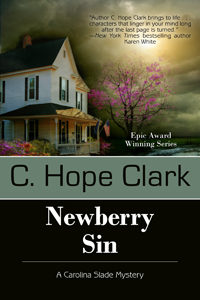



 Picture Perfect Meadowfield – 1987
Picture Perfect Meadowfield – 1987







 From WALLY AVETT, Martins Creek, Murphy, NC Jan. 3, 2017
From WALLY AVETT, Martins Creek, Murphy, NC Jan. 3, 2017